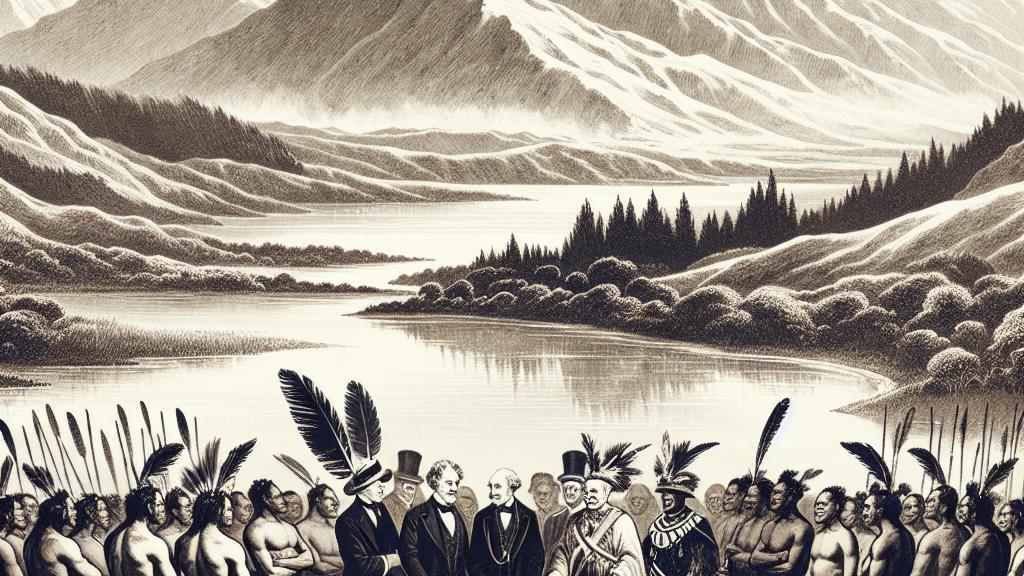The Treaty Tango: New Zealand's Bold Move to Reinterpret History!
Overview
- New Zealand announces plans to introduce a bill aimed at redefining the pivotal principles of the Treaty of Waitangi.
- Intense political opposition emerges, complicating the bill's path through the government.
- The unfolding debate underscores the critical balance between Indigenous rights and governmental authority.

Diving Deep into Treaty History
In the picturesque landscapes of New Zealand, the Treaty of Waitangi serves as a crucial cornerstone of national identity—an intricate piece of history reflecting the rich narratives of the Māori people. Signed in 1840 by Moorish chiefs and British representatives, this treaty marked the beginning of a complex relationship between the Indigenous population and European settlers. Imagine two distinct realities encapsulated within the treaty: the Māori version, which treasures the authority of the chiefs, and the English version, often viewed as a handover of sovereignty to the Crown. This duality not only sets the stage for past grievances but also raises contemporary questions about rights and governance, as New Zealanders grapple with the ramifications of their historical choices.
The Treaty Principles Bill: A New Direction?
Fast forward to the present, where the introduction of the Treaty Principles Bill, championed by Associate Justice Minister David Seymour, could signal a transformative moment in New Zealand's legal landscape. This proposed legislation aims to redefine how the principles of the Treaty of Waitangi are interpreted, much like adjusting a camera lens to capture a clearer picture. It seeks to clarify governmental authority while simultaneously recognizing Indigenous rights, striving to strike a balance in a complex socio-political environment. However, the road to enactment is fraught with challenges; key coalition partners, such as the National Party and New Zealand First, have raised red flags, hinting at deep-seated disagreements that could stall the bill's progression. This tug-of-war illuminates the ongoing struggle to reconcile different perspectives within a democratic framework, echoing the historical tensions that have framed New Zealand’s journey.
Controversy Brews: Implications for Māori Rights
The implications of this proposed legislation extend far beyond the halls of parliament, igniting passionate discourse around the future of Māori rights in New Zealand. Many Māori leaders view the bill as not just a legal measure but a potential regression, a shadow cast over the progress made in recognizing Indigenous rights over the past decades. While supporters claim it promotes equality, critics argue it risks eroding hard-earned gains and reviving colonial narratives of disregard. Picture the Māori community, approximately 20% of the vibrant New Zealand population, standing at a precipice, contemplating the ramifications of these shifts against their rich cultural tapestry. As discussions heat up, the essence of the treaty's spirit must resonate through the fabric of national dialogue, encouraging inclusive conversations that honor every voice while striving for justice and fairness.

Loading...